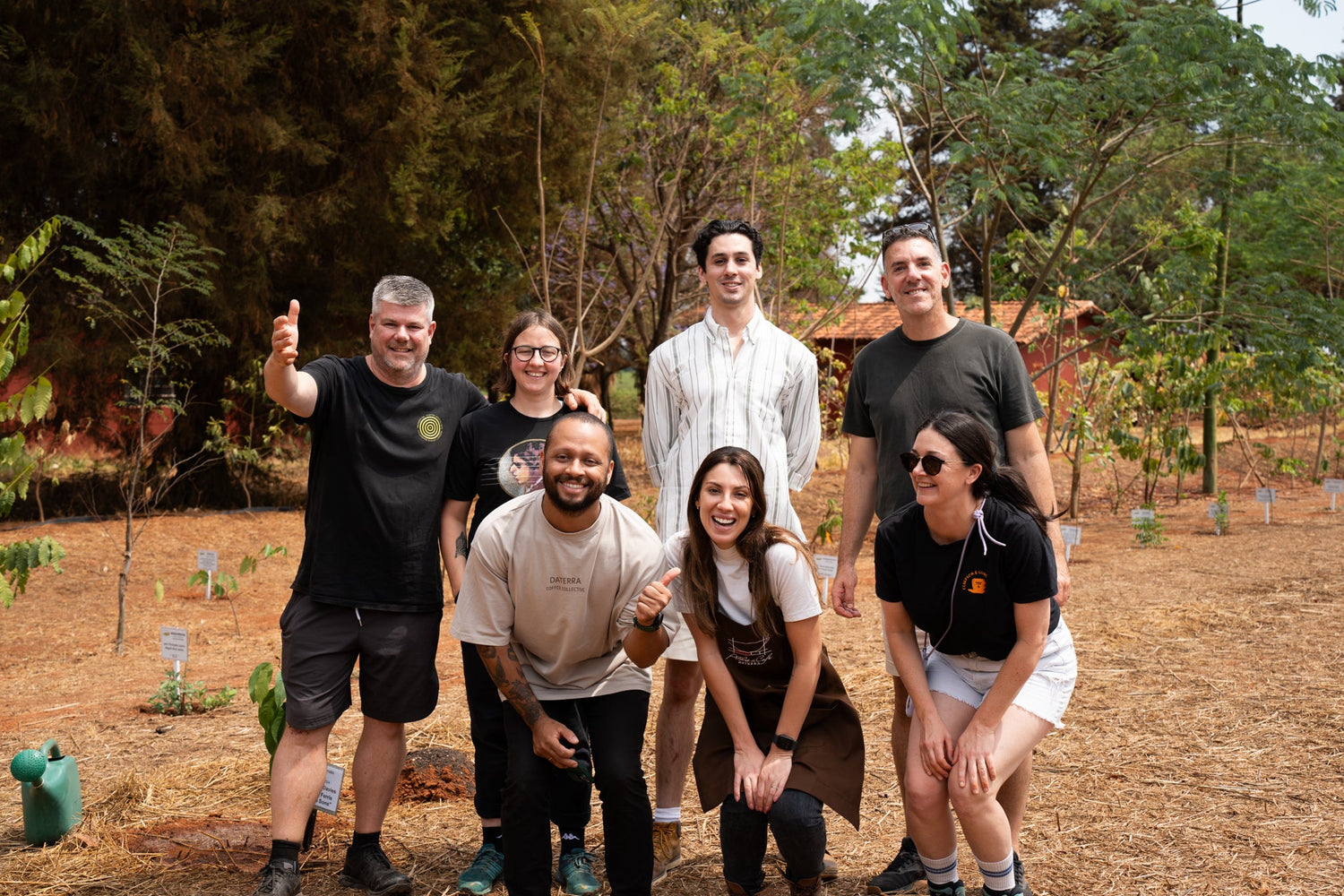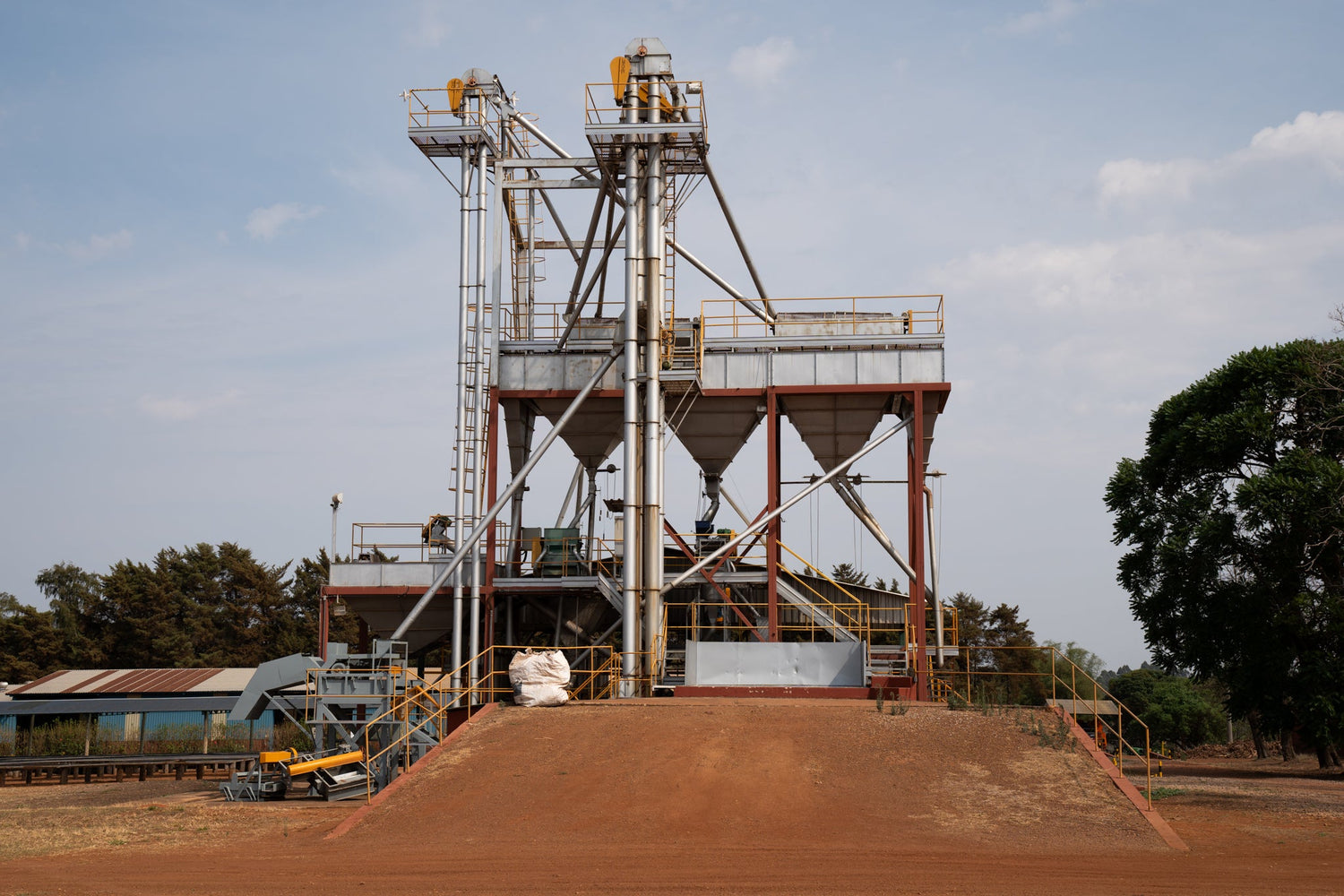By Simon Clark
Coffees from Brazil make up a huge part of the Climpson & Sons menu and, in terms of sourcing, this is easily our largest origin of focus. The Baron, our inimitable Classic Espresso, is sourced entirely from Daterra whilst we also work with other Brazilian producers to source Broadway Blend components, full-bodied filter coffees and also cater for many of our bespoke customers. We aim to visit our partners in Brazil every year to gauge their feelings on the current harvest and learn from recent challenges and innovation brought about by the uncertain nature of agriculture. When it comes to tasting through the hundreds of samples we can make more informed choices and piece together the multiple containers that will be shipped our way later in the year. With just a week to make our way across the sprawling State of Minas Gerais sleep was secondary to a whirlwind of farm visits, cupping labs, export mills and catch ups with old friends!
The first stop on any of our Brazil visits is always the impressive Daterra Estate. Our relationship with Daterra really is the cornerstone of our offering and for more than 7 years we have sourced consistently excellent coffee to build The Baron Espresso. Key to this is the shared values of quality, sustainability and innovation.
The initial welcome to Daterra is truly an education in what can be achieved in producing specialty coffee at scale but key to this is also the sense of community and care. On 6500 ha Daterra actually encompasses two different farms (Taboues & Boa Vista) that are then further managed as mini-farms, defined by their differing conditions and the varieties planted. Coffee production is set across 2500 ha whilst more than 3000 ha is part of their wider focus on preserving the unique ecological balance that makes coffee possible. Unlike most other producers, Daterra has the unique ability to tackle challenges in production and lead the way in environmental sustainability. Custom harvesting machines are built on site and pioneering research is conducted alongside major Universities with the investment of founder Luis Pascoal - a man whose success in the automotive industry sparked a passion to reinvest in a sustainable future for Brazil.
With a vast operation in the full swing of peak harvest time we had the opportunity to follow our coffee from the tree right through processing.
The coffee that eventually arrives to us comes from the Taboues side of the farm and can be traced to the sectors 15, 28 & 36, planted with the varieties Catuai, Mundo Novo and IAC125 respectively. Even at 1,150 masl the landscape here is generally flat allowing for the mechanical harvesting of cherries. Whilst this speeds up the picking process it does mean there are varying degrees of ripeness from each plot when delivered to the wet mill for processing. Here Daterra have innovated their own Smart Wet Mill with all incoming cherries sorted into 7 degrees of ripeness which will determine their processing method. In selecting The Baron Espresso we are after a full-bodied coffee with strong chocolate, hazelnut and dried fruit notes. With this in mind we gravitate to the natural process implemented on the left hand side of the wet mill with the almost dried raisin stages of ripeness. Natural drying on the tree is specifically unique to the Cerrado region and its consistently hot and dry microclimate.
With the coffee perfectly selected these lots are then sent for an initial patio drying before controlled mechanical drying is used at low temperatures to maximise space and homogenise humidity.
Once dried to 11-12% humidity, coffees are sent to rest and stabilise in huge storage silos before they can be prepared for export. Again, Daterra sets new standards with their high-tech dry mill first separating the beans from dried cherry (or parchment for pulped coffees), sorting by density and size, laser colour sorting and a final UV sorting to remove any invisible defects.
With coffee prepared to such an exact standard Daterra then utilise their vacuum packaging Penta process to ensure that the green coffee can be shipped, stored and roasted with almost perfect consistency year round.
Volume and consistency have become the hallmark of Daterra and The Baron’s reputation. With such control and care in place, it is no surprise that with every batch we roast and brew, we still find the quality completely spot on. As far as we’re concerned, it’s a modern classic.






